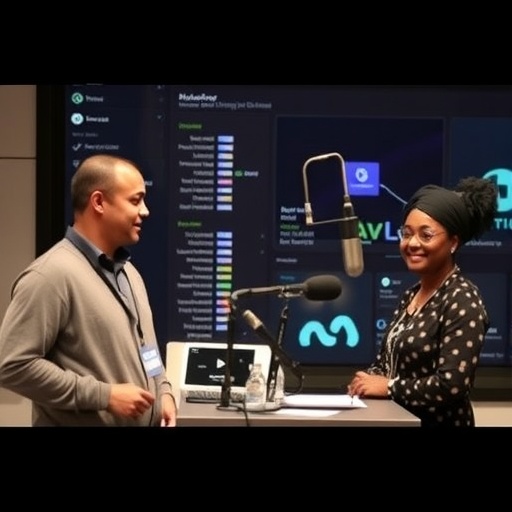In an era where healthcare equity is a burgeoning topic of discussion, the accessibility of audiology services stands out as a crucial but often overlooked aspect of health systems worldwide. A recent study conducted by Khoza-Shangase and Munyembate sheds light on the alarming gaps in public audiology service access in Johannesburg, South Africa. Delving into the barriers that many face in obtaining hearing healthcare, the research not only highlights systemic deficiencies but also emphasizes the dire need for reforms to ensure healthcare is truly a right for all.
In South Africa, the public healthcare system is designed to cater to a large and diverse population. However, despite significant advances in technology and audiology practices, there remains a substantial disparity in access to audiometric services. The study conducted in Johannesburg uncovers a revealing picture: while some individuals can access audiological assessments and fitting services, many find themselves on the fringes due to economic and geographical limitations. The researchers conducted a comprehensive survey that highlighted socioeconomic factors, illustrating how these barriers inhibit access for vulnerable demographics.
One of the predominant themes identified in the research is the lack of education surrounding hearing health. Many individuals lack awareness of the importance of early intervention and what services are available to them. The stigma surrounding hearing loss also plays a role, as social perceptions often discourage people from seeking help. This psychological barrier, compounded with socioeconomic challenges, can lead to a cyclical pattern where those most in need of assistance are the least likely to receive it.
Furthermore, the infrastructure for public audiology services in Johannesburg is under considerable strain. The study reveals that there are insufficient facilities and trained personnel to meet the growing demand for audiological care. This inadequacy results in long waiting times, limited service hours, and a reliance on outdated equipment. The research advocates for investment in modern audiological technology and an increase in trained audiologists to effectively address the needs of the population.
Interestingly, the study also discusses the role of telehealth in expanding access to audiology services. With the onset of the digital age, telehealth offers a promising avenue for delivering audiology care to remote or underserved communities. Virtual consultations, remote hearing assessments, and follow-up appointments could bridge the gap for those unable to travel for in-person visits. By incorporating technology effectively, the healthcare system in Johannesburg could revolutionize how audiological services are delivered.
Moreover, the work of Khoza-Shangase and Munyembate suggests that policy reform is essential to create a more inclusive healthcare environment. This includes not only broadening the scope of public audiology services but also enhancing funding and resources dedicated to hearing health. Collaborative efforts from both the government and non-governmental organizations will be vital in implementing changes that improve accessibility.
The data collected in the study indicates that many individuals experiencing hearing loss remain undiagnosed and untreated. This deafness, often unnoticed in the broader dialogue surrounding health outcomes, can severely affect social interactions and educational opportunities. Children suffering from undiagnosed hearing impairments may struggle in school, leading to lifelong consequences in their personal and professional lives. Raising awareness about these impacts is crucial for ensuring that hearing health remains a priority in the public discourse.
In addition to educational efforts, the study proposes community outreach initiatives aimed at providing information about hearing loss and available services. Workshops, informational campaigns, and community programs could significantly improve knowledge and encourage individuals to seek assistance. By fostering an environment where people feel empowered to address their hearing health, barriers can slowly begin to erode.
The psychological aspects of hearing loss cannot be understated either. Loneliness and isolation are prevalent among those experiencing hearing difficulties, compounded by society’s lack of understanding. Broaching topics like mental well-being alongside hearing health could create a more holistic approach to care, helping individuals understand that seeking treatment is not merely a medical necessity but a vital aspect of their overall quality of life.
As the study underscores, the future of audiology services in Johannesburg depends on collaborative action from all stakeholders, including healthcare professionals, policymakers, and community members. It is not enough to identify barriers; proactive steps must be taken to dismantle them. The authors of this pivotal study call upon all involved to play their part in addressing these inequalities in hearing healthcare.
The challenges illuminated in this research are not unique to Johannesburg or South Africa but resonate globally. The United Nations has recognized the importance of universal health coverage, yet access to such specialized services remains a challenge for many. This recent study serves as a stark reminder that addressing audiology access is a critical component of ancient beliefs about health equity and should not be ignored in future healthcare policies.
In conclusion, the intricate web of barriers affecting access to audiology services in Johannesburg requires urgent attention and action. The insights derived from Khoza-Shangase and Munyembate’s research must spark dialogue and initiatives aimed at creating a more inclusive healthcare system. As the narrative around health equity expands, it is essential not to overlook hearing health as a fundamental component of overall well-being.
This research represents a significant step towards understanding and improving access to hearing healthcare. By equipping stakeholders with relevant data and emphasizing the importance of equitable care, it is possible to foster a future where every individual has the opportunity to address their hearing health needs without hindrance.
Subject of Research: Audiology Service Accessibility in Johannesburg, South Africa
Article Title: Hearing healthcare for all? Investigating accessibility of public audiology services in Johannesburg, South Africa
Article References:
Khoza-Shangase, K., Munyembate, TJ. Hearing healthcare for all? Investigating accessibility of public audiology services in Johannesburg, South Africa.
BMC Health Serv Res 25, 1553 (2025). https://doi.org/10.1186/s12913-025-13224-4
Image Credits: AI Generated
DOI: https://doi.org/10.1186/s12913-025-13224-4
Keywords: Accessibility, audiology, hearing healthcare, South Africa, public health, equity, telehealth, policy reform.




